 |
|
|
CAPPA's
2018-19 Board of Directors
|
|
Rick Richardson
Child Development Associates
Karen Marlatt
Valley Oak Children's Services
Beth Chiaro
Child Care Resource Center
LaVera Smith
Supportive Services Fresno
Martin Castro
Mexican American Opportunity Foundation
Jeffrey Moreira
Crystal Stairs, Inc.
Public Policy Co-Chair
Phillip Warner
Children's Council San Francisco
Tina Barna
Choices for Children
Abby Shull
YMCA Childcare Resource Service
Leslie Reece
Family Resource & Referral of San Joaquin County
Jeanne Fridolfs
Napa County Office of Education
Mike Michelon
Siskiyou Child Care Council
Marco Jimenez
Central Valley Children's Services Network
San Mateo 4Cs
Michelle Graham
Children's Resource & Referral of Santa Barbara County
Joie Owen
Glenn County Office of Education
Denyne Micheletti Colburn
CAPPA CEO
|
|
|
EESD/CDE, DSS & CCLD Updates
|
|
The ELCD will host a webinar on Tuesday, October 9, 2018, from 10:00 a.m. to 12:00 p.m. to provide technical assistance with the Child Development Management Information System (CDMIS).
The form for reporting General Child Care data (CDNFS 9500) has been posted to the Child Development and Nutrition
California is eligible for a new federal grant opportunity administered by the United States Department of Health and Human Services, the Preschool Development Grant (PDG). The maximum amount a state can apply for is $15 million and the application is due November 6, 2018. Similar to the prior Race to the Top-Early Learning Challenge grant, this is a Governor's application and it requires Governor Brown's
s
ignature in order to be submitted.
The CDE is pleased to announce the release of an Early Learning Career Lattice, which was recently approved by the State Advisory Council on Early Learning and Care at its June 20, 2018, meeting.
August 28, 2018
August 24, 2018
August 21, 2018
August 17, 2018
August 3, 2018
CDSS has scheduled a Public Hearing on September 19, 2018, to receive testimony on proposed regulations concerning Safe Sleep for infants in childcare facilities.
Learn more here.
August 1, 2018
MB 18-05:
Transfer of Families into a California Work Opportunity and Responsibility to Kids Stage 2 Child Care Program
|
|
|
October 2018 Featured Agency of the Month
|
|
|
|
Solano Family & Children's Council, Inc.
was founded in 1978 by a group of Licensed Child Care Providers in Solano County. Solano County originally received $21,575 in funding from the State (AB 3059) for Resource and Referral Services. In April 1979, SFCC was established as a 501c (3) organization. Click here
to read more.
|
|
|
Job Announcement Highlight
MCT Technology
We have a job opening for Infant Toddler Program Trainer / Director in Shanghai, China. Looking for someone who is interested in joining an extremely dynamic team to build an innovative national ECE model in the fastest growing economy. Salary: $70,000 - $85,000 (based on experience) + Equity Housing and Meals: Company paid Annual Travel: 2 x Round trip tickets between China and US
Is Your Organization Hiring?
Post your job announcement here for thousands to see!
There is no charge for CAPPA members.
Non-members will be charged a fee of $75.
Please
email us
your posting!
Child Care Resource Center
Solano Family & Children's Services
Community Action Partnership of San Luis Obispo County, Inc.
International Institute Los Angeles
Child Development Centers, Inc.
Children's Council of San Francisco
Receptionist
Community Child Care Coordinating Council (4Cs) of Alameda County
Pomona Unified School District- Child Development
Children's Council San Francisco
Child Care Coordinating Council, Inc. of San Mateo County
Child Development Inc. is Hiring! See the Recruitment Flyer
Here.
|
CAPPA Member Benefits now available on the Members Only website:

NEW! CAPPA Member Benefit: Travel and Entertainment Discounts.
Save up to 40% on theme parks, movies and shows!
CAPPA Community Forum
This Forum is an integrated discussion board and will allow members to engage in online discussion, subscribe to your favorite topics, get your questions answered and upload your agency forms- Find answers, stay informed, and make connections!
Email CAPPA for your log-in so that you can access this forum and all other resources that the member's only website has to offer.
Successful Classroom Management
|

AmazonSmile is a simple and automatic way for you to support CAPPA every time you shop. When you shop at
smile.amazon.com
,
you'll find the exact same low prices, vast selection and convenient shopping experience as Amazon.com, with the added bonus that Amazon will donate a portion of the purchase price to CAPPA.
If interested, you can also sign up for an Amazon Business account for free. This is similar to a Prime account and will give you free 2-day shipping. You can learn more
Here.
Please let us know if you have any questions. Thank you for your support!
|
The CAPPA Board has made it a priority to support our field with a coordinated calendar to note upcoming statewide conferences, federal conferences of relevance, CDE and DSS stakeholder meetings and legislative and budget deadlines and hearings.
If you have news to share or an event you want added to CAPPA's website calendar,
email us!
|
|
 |
|
 |
All bills pending before the governor have now been acted. Unless otherwise noted in legislation, bills signed by the governor will go into effect on January 1, 2019.
To see the final outcome on legislation that impact child care, CalWORKs, housing, poverty or broadly the families and children that we serve,
click here.
November 6 is the General Election. Please make sure that you are registered to vote! The deadline to register is on October 22, 2018.
Requirements To Register to Vote:
You must
- be a United States citizen
- be 18 years of age on or before the day of the election (you can pre-register at 16)
- be a resident of the State of California
- not be in prison or on parole for the conviction of a felony
- not judicially determined to be incompetent to vote
You do not need to know how to read or write in English or any other language. No tests are given when you register to vote.
Re-Registering to Vote
You must re-register to vote (by filling out new registration form) if:
- You change your address within the county or move to another county in California
- You change your name
- You wish to affiliate (join) a political party or change your political party affiliation
- You want to change where your ballot is being mailed
If you move within the same county, you may also send a letter to the
County Election Official giving your old and new address and signing your name as you are registered.
If you are living at the same address, you do not need to re-register if you miss one election or many elections.
Cost
Voter registration is free. No fee may be charged for voter registration. No postage is required to mail the voter registration application to the
County Election Official.
Click here to go to the California Secretary of State's office for more information.
Click here to see the propositions on the November 6th ballot.
Click here to see a certified list of candidates that will be on the November ballot.
NOTE: To understand more about what is at stake in the November elections, at the Network and CAPPA Joint Conference 2018, a conversation will be supported on Wednesday October 17, 2017 with insights provided by:
Dan Walters, Opinion Columnist for CALMatters;
Ted Lempert, President of Children Now;
Lenny Goldberg, California Tax Reform Association
, Pete Weldy, Choose Children 2018, and
David Metz, Fairbank, Maslin, Maullin, Metz & Associates
.
Federal
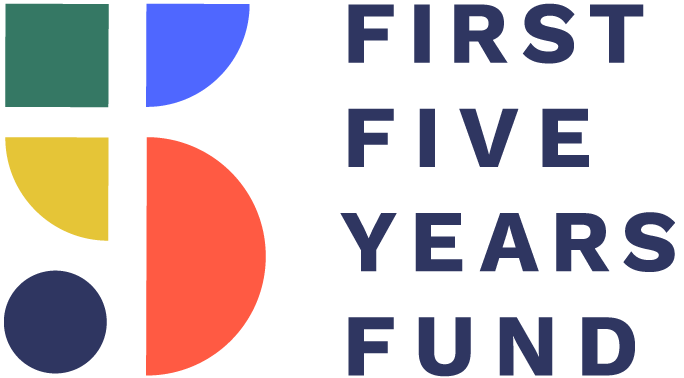
Congress Approves $260 Million Funding Increase for Federal Early Childhood Programs
Washington, D.C. - In a critical bipartisan House vote, Congress has approved a FY2019 "minibus" appropriations package that includes $260 million in increases to the federal early childhood education programs. Notably, in addition to a $200 million increase to funding for Head Start and Early Head Start, lawmakers voted to increase funding for the Child Care and Development Block Grant (CCDBG) program by $50 million, building on the historic $2.37 billion increase the program received in FY2018 through
a bipartisan deal
made by House and Senate leaders.
The funding package approved today, which also includes FY2019 funding for the Department of Defense, as well as a short-term Continuing Resolution to fund the rest of the government through December 7, 2018, was overwhelmingly approved in a 361-61 vote, and now awaits the president's signature.
"Congress has again prioritized the care and education of America's young children, building on years of bipartisan progress and commitment from lawmakers," said First Five Years Fund (FFYF) Executive Director Sarah Rittling. "The funding levels included in this bill will support greater access to, and the quality of early childhood education programs that are proven to support children's healthy development and prepare them for a lifetime of achievement. We are grateful to Democratic and Republican leaders in the House & Senate for their unwavering support for children from birth through age five."
Earlier this month, a Congressional Conference committee made up of bipartisan representatives from the House and Senate
reached agreement on this funding "minibus" package, after negotiating appropriations legislation from the
House and
Senate.
Take a look at the final FY2019 funding numbers as approved today:
Child Care and Development Block Grant (CCDBG)-$5.3 billion - $50 million above FY2018
Early Head Start / Head Start-$10.1 billion - $200 million above FY2018
Preschool Development Grants-$250 million - Level with FY2018
Child Care Means Parents in School-$50 million - Level with FY2018
IDEA Part B Preschool Grants-$391.12 million - $10 million above FY2018
IDEA Part C Grants for Infants and Families -$470 million - Level with FY2018
Research shows high-quality early learning and care from birth through age five benefits the academic, social, and emotional skills of children later in life and contributes to improved long-term societal outcomes. The high-quality early childhood education programs included in today's appropriations package play a critical role in ensuring that all children, regardless of where they start in life, have the opportunity to build a foundation for lifelong success.
FFYF is committed
to working with stakeholders in the coming months to build upon the robust federal support for early childhood education programs so that all children can access high-quality opportunities that help them reach their full potential.
|
|
|
EESD will now be known as the California Department of Education Early Learning and Care Division (EELC)
|
|
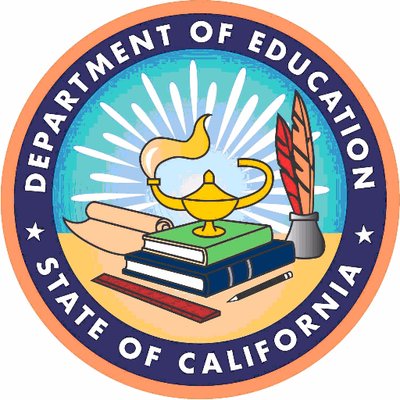
VISION All California's children have a strong early learning and care foundation, supporting the whole child and school and lifelong success.
MISSION Lead an innovative, inclusive, and high-performing early learning and care system by advancing equitable opportunities that optimize thriving children, families, and communities.
Three Priorities:
Priority 1: One System - Create One System with a Collective Voice and Lead Systems Alignment and Reform
Priority 2: Equity, Capacity and Quality - Address Equity by Building Capacity and Quality Across Agencies, Programs, Settings, Communities, and the Early Learning and Care Workforce
Priority 3: Integrity, Stewardship, and Excellence - Provide Reliable Leadership, Service, and Support
|
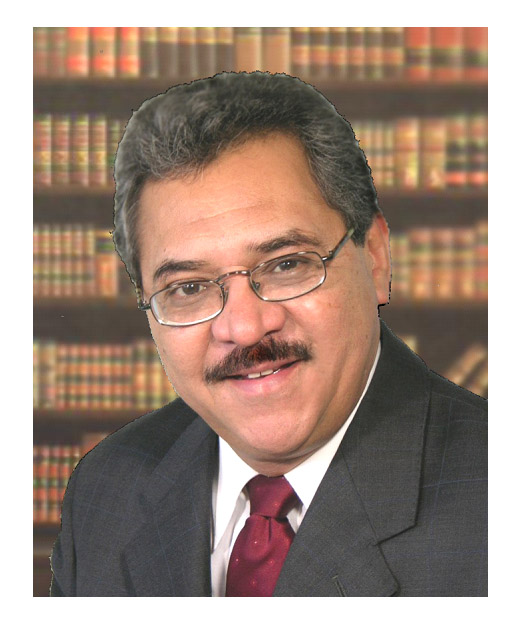
Our own Martin Castro, President and CEO of the Mexican American Opportunity Foundation his contributions to the Latino community as part of our celebrations during Hispanic Heritage Month.
If you have someone to be recognized in our field, email
CAPPA.
|
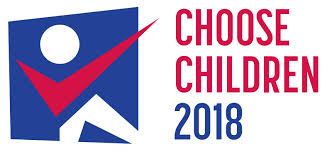
One month to go. In just thirty days, Californians have the chance to make their voices heard and elect a governor who will prioritize early childhood care and education. It's time we stand up for our state's youngest children and invest in the next generation.
Do you know where the candidates stand? Read Gavin Newsom's and John Cox's platforms!
A "public charge" is a policy implemented by the federal government to identify people who may depend on benefits (TANF, Supplemental Security Income, long-term care) to support themselves and their families. The social safety net and programs like these support the wellbeing of families and communities. Under current policy, the United States can deny an immigrant/refugee admission to the country, or refuse an application for residency, if it's determined that the person(s) would be a public charge.
Click here to read Gavin Newsom's platform on education.
Through my work as an educator and on the documentary No Small Matter, I know how much important development happens in a child's brain from birth to age five. That's why on November 6th, I plan to vote for the gubernatorial candidate who is the best advocate for California's youngest generation.
Your vote matters. Make your voice heard on November 6th and cast a vote for the candidate you believe will be the best champion for early childhood care and education.
Thank you for supporting California's youngest children,
Rachel Giannini
No Small Matter
Please note, No Small Matter will be shown at the Network and CAPPA's Joint Conference 2018. Click here to register.
|
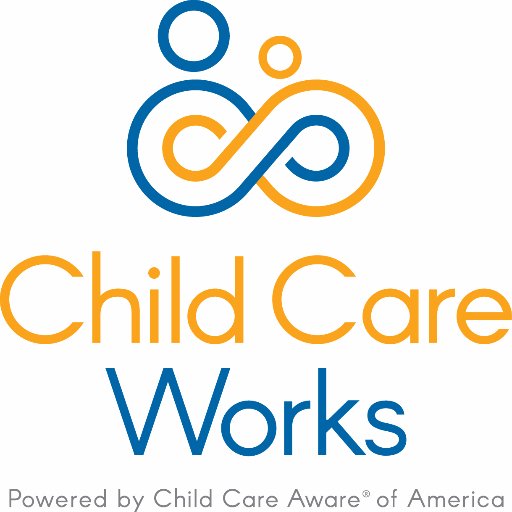
The Trump Administration announced a very harmful draft proposal that would change the definition of a "public charge" in an effort to support its ongoing and extreme overhaul of U.S. immigration policy.
A "public charge" is a policy implemented by the federal government to identify people who may depend on benefits (TANF, Supplemental Security Income, long-term care) to support themselves and their families. The social safety net and programs like these support the wellbeing of families and communities. Under current policy, the United States can deny an immigrant/refugee admission to the country, or refuse an application for residency, if it's determined that the person(s) would be a public charge.
The Administration's proposal would considerably expand the public charge definition, putting millions of families at risk by forcing them to forgo any public assistance in an effort to remain in the country. This proposed rule would target many programs that help low-income families, including:
* Non-emergency Medicaid
* Subsidies provided through the Affordable Care Act
* Temporary Assistance for Needy Families (TANF)
* Supplemental Nutrition Assistance Program (SNAP)
* Supplemental Security Income (SSI)
* Housing assistance such as Section 8 vouchers, and
* State and local assistance programs
In addition, the Administration is considering adding the Children's Health Insurance Program (CHIP) to the list of benefits.
This rule would impact the lives of millions of children and families who not only rely on the programs listed above but also those who depend on child care assistance and other critical education and health programs. In fact, many immigrant families have already disenrolled from these programs even though current U.S. public charge policy still remains.
The Administration is expected to officially publish this proposal soon and will seek comments for 60 days after its release, and we strongly encourage you to respond. In addition, Child Care Aware® of America is working closely with the National Immigration Law Center and CLASP and you can access key resources here. Also, we strongly urge you to join the webinar both organizations are hosting on
October 3 or October 17. Both are scheduled for 1:00 pm EST.
|
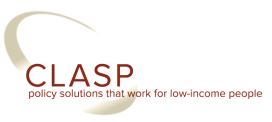
CAPPA is pleased to support a strengthened partnership with CLASP. We are pleased to profile research that they have done here.
States recognize these weaknesses in existing postsecondary policies and have led the way on college completion and achievement initiatives that involve retrofitting systems designed for traditional students to meet the needs of today's low-income students.
Click here to read more.
The Department of Homeland Security's "Sensitive Locations" Policies. The president issued a series of executive orders in January 2017 that effectively made all undocumented immigrants a priority for deportation. The executive orders also significantly increased the enforcement capacity of federal Immigration and Customs Enforcement (ICE) and Customs and Border Protection (CBP). As a result, arrests in communities-notably among immigrants without criminal violations-have been particularly heightened under the Trump Administration. Advocates, policymakers, and immigrant communities have responded with outrage over several high-profile incidents of immigrants being detained immediately before or after dropping their children off at school, at or en route to the hospital, inside the courthouse,4 and outside church-affiliated homeless shelters.
Click here to read the fact sheet.
|
 We fully sponsored 9 online webinars hosted by top early education leaders last year - just so you can access this content anytime, for free. We fully sponsored 9 online webinars hosted by top early education leaders last year - just so you can access this content anytime, for free.
These resources are there to help you improve, whether its to be a better teacher, director, owner or advocate
Here's a list of our most recent webinars:
|
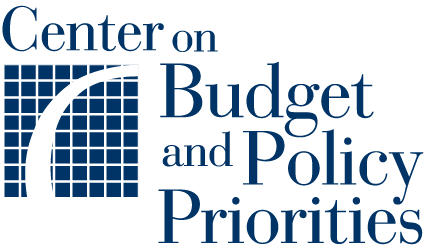
After several years of lower poverty rates, higher income, and broader health coverage, gains slowed - and
in some cases stalled
- in the states in 2017, new Census data show. For example, fewer states reduced their share of people below the federal poverty line (about $25,000 for a family of four), according to
new state data
from the American Community Survey. Because policy decisions affect whether people get a real shot at economic opportunity and communities thrive, states should do what they can to reverse the decline in progress.
Today's data show that:
- Poverty fell in 21 states in 2017 and rose in two (Delaware and West Virginia), compared to 2016 when it fell in 25 states and rose in just one.
- Child poverty, in particular, fell in 16 states in 2017, compared with 23 in 2016. It rose in one state, New Hampshire. (See chart.)
- Fewer states saw incomes rise, likely due in part to a slowdown in employment gains, and income gains were not shared equally across racial and ethnic groups, as I've explained.
|
|
Of Interest
NOTE: If you would like to share your newsletter or items of interest with our field via the Monday morning e-Newsletter, then please
email us
a link. Please make sure that you have a link included to an online version or viewing
|
October 9, 2018 Hearing
What:
Assembly Blue Ribbon Commission on early childhood education hearing
When:
Tuesday, October 9, 2018 at 1:00pm
Topic:
Opportunity for All our Young Learners and their Families (L.A. Focus)
Where:
Long Beach City College
Trustees Boardroom (building T on map)
4901 East Carson Street
Long Beach, CA 95808
Parking: Parking Structure J, Lot K or Lot N.
|
1 Week!! Online registration is now closed. If you need to register, please contact
Danielle.
For more conference information and highlights, visit the
Conference Webpage.
Here is a highlight of just a few workshops that will be offered:
- What's Trending for Children & Families in California
- Family Partnerships & Culture
- Welcome to the Jungle: Where Exceptional Service is up to Us
- Where are We Going? A Conversation with CDE and CDSS
About the Conference
The California Child Care Resource & Referral Network and the California Alternative Payment
Program Association look forward to hosting our 6th Joint Conference together this fall.
Over 75 plus workshops are scheduled. Conference registration includes four meals, two plenary
sessions, over 60 workshop selections and all conference materials.
Hotel Reservations:
Our room block at the DoubleTree is sold out. If you are still in need of a room, please email
Danielle.
Partnership Information:
|
Regional Technical Assistance Trainings-Fall 2018


|
November 8th
Orange
Children's Home Socierty
|
November 29th
Chico
Valley Oak Children's Services
|
December 7th
Pleasanton
Child Care Links
|
December 11th
Bakersfield
Community Connection for Child Care- Kern County Supt. of Schools
|
CAPPA member agencies, with the support of CAPPA & Children's Foundation, have put together a series of Informational and Networking Sessions that will be coming to a region near you!
This series will offer a variety of Hot topics for the field and ALL staff are encouraged to attend.
If you would like to add any topics to the agenda, please let us know!
Agenda:
Best Practices Session (10:00am-11:45am):
- 12-month initial and recertification - Do you still have questions?
- Provider Reimbursements
- Technology
- Where are you with direct deposit?
- Digital signatures
- Moving towards a paperless work environment
- How to strengthen communications between parents and providers
- Lunch (11:45am-12:15pm)
- CAPPA Political Update and Election Discussion (12:15pm-1:00pm)
- Peer-to-Peer Networking Session (1:00pm-2:00pm):
This portion of the agenda will allow attendees to share their successful strategies, tools and ideas.
|
|
|
Register Today for an Entire Year's Worth of Training!
|
|

All New Early Learning & Child Care Webinar Series for 2018!
Build or Add to your
Resource Library!
This is Your Opportunity to Receive Professional Development in a Format Convenient to You.
Topic for October 2018:
Successful Classroom Management
Vicki Gibson, Educational Consultant, Author and Speaker, Gibson Hasbrouck & Associates
Early Educators know that when you're faced with a room full of children, clear expectations and routines are vital if teaching and learning are going to happen. Implementing classroom management techniques can be a challenge when you're dealing with high-energy kiddos. During this webinar, we will discuss the keys to classroom management in an early childhood setting.
Click Here to see more details, topics and to register for the all new 2018 series.
The 2010- 2017 series' are still available for purchase. Purchase the 2010, 2011 and 2012 webinar CDs for 50% off!! For more information or to view past topics,
Click Here.
|
|
|
CAPPA Monday Morning Update Partner
|
|

Our Monday Morning Update supports our Early Learning & Child Care field with timely information about what is going on in California and nationally; as well as dates to be aware and upcoming events.
Our weekly (50 times per year) Monday morning distribution is to more than 4,000 federal and state local agencies, resource and referrals, contractors, legislators and their staffs', centers, parents, providers, state departments and advocates.
To help support the continuation of this resource and or advertise in the Monday Morning Update, click
HERE.
You can also make a donation to CAPPA and CAPPA Children's Foundation
The Children's Foundation is a non-profit organization (501(c)3), Taxpayer Identification Number is
03-0521444. Your generous donation is tax deductible.
|
|
|
 |